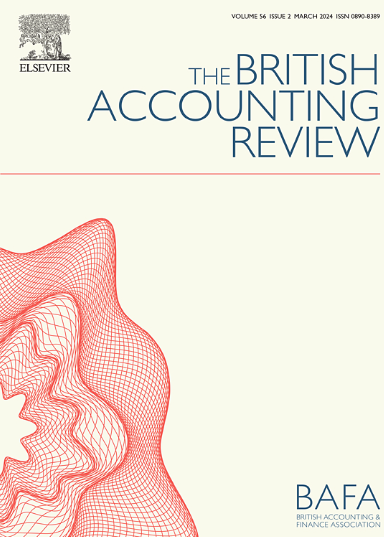Economic policy uncertainty, carbon emissions and firm valuation: International evidence
IF 5.5
3区 管理学
Q1 BUSINESS, FINANCE
引用次数: 0
Abstract
This paper explores how the uncertainty surrounding economic policies affects the decisions managers make, particularly with reference to carbon emissions. Notably, this is a pioneering effort as very few studies have examined the influence of economic policy uncertainty on decisions about either carbon emissions or renewable energy, and, in turn, the impact of these decisions on firm value. From a sample spanning 22 countries over the period 2007 to 2018, our results show that, while carbon emissions increase with policy uncertainty, this relationship is mediated by renewable energy consumption. Country factors such as climate change performance, emissions trading schemes, and business culture also affect this relationship. In countries where economic policy uncertainty tends to be high, firms generally have a lower market value, due in part to higher levels of carbon emissions. These findings highlight the importance of connecting policy uncertainty to decisions about carbon emissions and renewable energy. They also provide insights into the detrimental effects of policy uncertainty on firm value.
经济政策的不确定性、碳排放和企业估值:国际证据
本文探讨了经济政策的不确定性如何影响管理者的决策,尤其是碳排放方面的决策。值得注意的是,这是一项开创性的工作,因为很少有研究探讨经济政策的不确定性对碳排放或可再生能源决策的影响,以及这些决策反过来对企业价值的影响。从 2007 年到 2018 年期间 22 个国家的样本来看,我们的研究结果表明,虽然碳排放量会随着政策不确定性的增加而增加,但这种关系是由可再生能源消费所中介的。气候变化表现、排放交易计划和商业文化等国家因素也会影响这种关系。在经济政策不确定性较高的国家,企业的市场价值通常较低,部分原因是碳排放量较高。这些发现强调了将政策不确定性与碳排放和可再生能源决策联系起来的重要性。这些研究结果还为政策不确定性对企业价值的不利影响提供了启示。
本文章由计算机程序翻译,如有差异,请以英文原文为准。
求助全文
约1分钟内获得全文
求助全文
来源期刊

British Accounting Review
BUSINESS, FINANCE-
CiteScore
8.60
自引率
3.90%
发文量
39
审稿时长
76 days
期刊介绍:
The British Accounting Review*is pleased to publish original scholarly papers across the whole spectrum of accounting and finance. The journal is eclectic and pluralistic and contributions are welcomed across a wide range of research methodologies (e.g. analytical, archival, experimental, survey and qualitative case methods) and topics (e.g. financial accounting, management accounting, finance and financial management, auditing, public sector accounting, social and environmental accounting; accounting education and accounting history), evidence from UK and non-UK sources are equally acceptable.
 求助内容:
求助内容: 应助结果提醒方式:
应助结果提醒方式:


